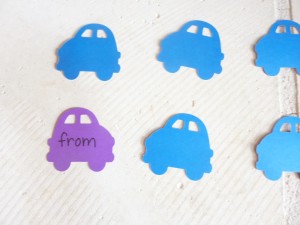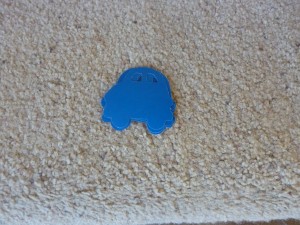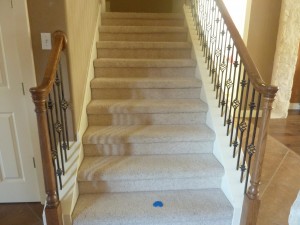Sight words, also known as Dolch words, are specific words that are most common in reading materials at a certain reading level. They are also referred to as “the words you just have to know.” The other day I overheard some parents discussing how they needed to be doing more flash card work with their children to build knowledge of sight words. What struck me was that they both said that it wasn’t going to be fun, they knew their children wouldn’t enjoy it, but they were going to make them so they wouldn’t get behind. Does this sound familiar? I totally get this and was there years ago thinking that that was the only way to work with my child at home. He of course was having none of it which led me on this journey! 🙂
So, is there a way to practice these words at home in a way that is more interesting than sitting across from one another with white index cards? Absolutely! I have used several different ways with Andrew within My Obstacle Course, did not experience resistance and learned a great deal about which words he knew and which ones he needed more practice with.
Dolch Sight Word Lists
Most teachers will give parents these lists so they can practice them at home with their child (you may even have it under a magnet on your fridge!). If you do not have these lists or have a young child but are curious about them, here are two links to all of Dolch Sight Word lists (if you want to Google it yourself, type in “dolch sight word listsâ€).  They are usually divided by grade level (Pre-Primer (preschool) to 3rd grade plus nouns) but you can also print out a complete list of the 220 words.
http://www.learningbooks.net/whydolchwords.html#lists (scroll down to see the lists)
http://www.kidzone.ws/dolch/preschool.htm
Note: When I did this with Andrew I started with the pre-primer list just to make I wasn’t leaving any gaps.
My Obstacle Course Station Activities Involving Dolch Sight Words

My Obstacle Course Station Activities For Building Sight Word Recognition
Here are some ideas I have to make sight word recognition more engaging for you and your child. These activities can be done with children regardless of intelligibility because you are helping to expose them to language and literacy skills, they are getting this information through all learning modes – visual, auditory and kinesthetic (doing something to be involved with the words aside from seeing and saying them). If you have a young child or if this is too challenging, these can also be adapted by writing letters instead of words to build basic letter recognition. The most important thing is to start where they are with this skill so that you can build upon that knowledge.
Note: Â With all of these activities, if your child is in the beginning reading stages, read the words out loud so they are hearing the word as they are looking at it. Â If your child struggles with reading, go back to words that are easier to build confidence and gradually blend in words that are more challenging. This is an opportunity to build word recognition in a way that is playful and fun, without the stress of having to perform in front of teachers or classmates.
Sight Word Memory Match





Sight Word Crawl/Climb and Match








Sight Word Cards on Ring

I am not crazy about sitting and doing flash card drills but I know that some people swear by this method so I found these colorful circles with a binder ring and thought they would be perfect for practicing something like this.  Since they were set up as a station, they were not a random “Work with Mommy or else!” chore, but simply a quick activity within My Obstacle Course. He either knew them or he didn’t and because they are bound together with the ring, we could flip through quickly and when there were words he didn’t know, I would take note of them, remove the ones he struggled with and use those words in other activities to increase exposure.

Personal Note: Andrew was reading before he was talking (which I learned by doing My Obstacle Courses with him and providing activities for him to demonstrate his knowledge without needing to speak) so don’t assume that just because your child is not speaking that they cannot work on reading skills! Had I not learned this, he would have still been working on basic letter recognition, instead of reading at his appropriate level, because way too often people assume that if you are delayed in one area, you are delayed in all. I encourage you to provide activities for your child and find out where they are in each developmental and academic area so you can meet them there and help them progress, whether that area is considered a strength or weakness.
Engage, Encourage and Empower!